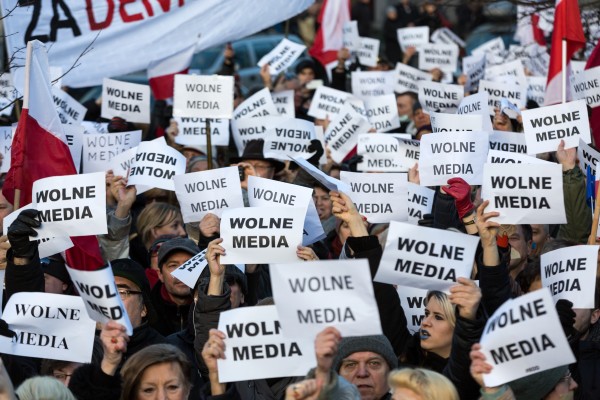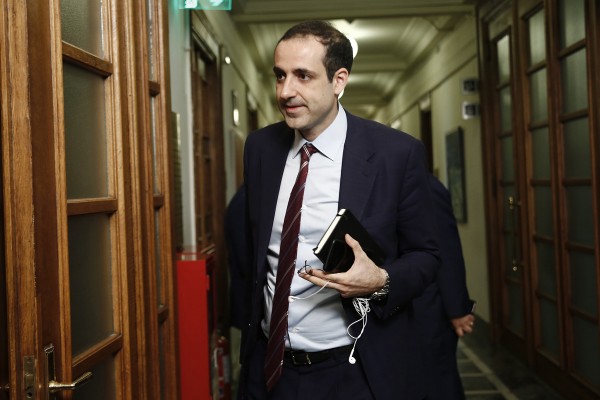IPI World Congress to Focus on Post-Communist Transition Fifteen years after the fall of Communism in Central and Eastern Europe and just two weeks after Poland and nine other countries formally join the European Union (EU), the International Press Institute will convene in Warsaw, Poland, for its 2004 World Congress and 53rd General Assembly.
Poland’s President Aleksander Kwasniewski is expected to speak at the Opening Ceremony on Sunday, 16 May. Other confirmed speakers include Polish Prime Minister Leszek Miller; Polish Foreign Minister Wlodzimiercz Cimoszewicz; former President of Slovenia, Milan Kucan; Santiago Canton, Executive Secretary of the Inter-American Commission on Human Rights; Miklos Haraszti, the newly-appointed OSCE Representative on the Media; Paschal Mooney, General Rapporteur on the Media for the Council of Europe; and Adam Michnik, former dissident and editor-in-chief of the first independent Polish daily, Gazeta Wyborcza.
The main theme of the Congress will reflect the region’s transition from Communism to democracy, with sessions analysing the situation in the former Communist states of Central and Eastern Europe 15 years after the unique events of 1989; the role of the Polish media as a watchdog against corruption; and press freedom violations in the countries of the former Soviet Union.
The second day will open with a session on “The Debate over the Future Borders of Europe”. On 1 May, today’s “EU of 15” will become an “EU of 25”. Bulgaria and Romania are set to join in 2007, with a queue of hopefuls, including Croatia and Turkey, wishing to join in the coming years. Looking further afield, Russia, Georgia and even Israel and the Maghreb countries are seen by some as potential future members. The EU’s new draft constitution says that any country can join as long as it shares the Union’s values – and is in Europe. But where does the continent of Europe end? And what impact will enlargement have on the EU and its ability to act?
In the session “Holding Member States of IGOs to their Press Freedom Commitments”, experts will examine why intergovernmental organisations (IGOs), many of which have charters or constitutions upholding press freedom, have failed to censure member states who breach their media freedom commitments. What can IGOs do to enforce compliance and what role can non-governmental organisations (NGOs) play?
A panel discussion on “Implementing Good Journalistic Practices” will round off the second day’s events, with interconnected sessions on “The Manifold Problems of Media Concentration” and “Globalization and Transborder Investment by Media Companies” scheduled for day three.
Finally, the IPI World Congress will offer an array of outstanding social events, as well as sightseeing and post-Congress tours to places of great cultural and historical interest, including Cracow, one of the most beautiful cities in Europe, the port city of Gdansk, the Tatra Mountains and the Mazurian Lake District.
Some 500 editors, media executives, leading journalists and their guests are expected to attend the event, which will be held at the Sheraton Warsaw Hotel from 15-18 May 2004.


